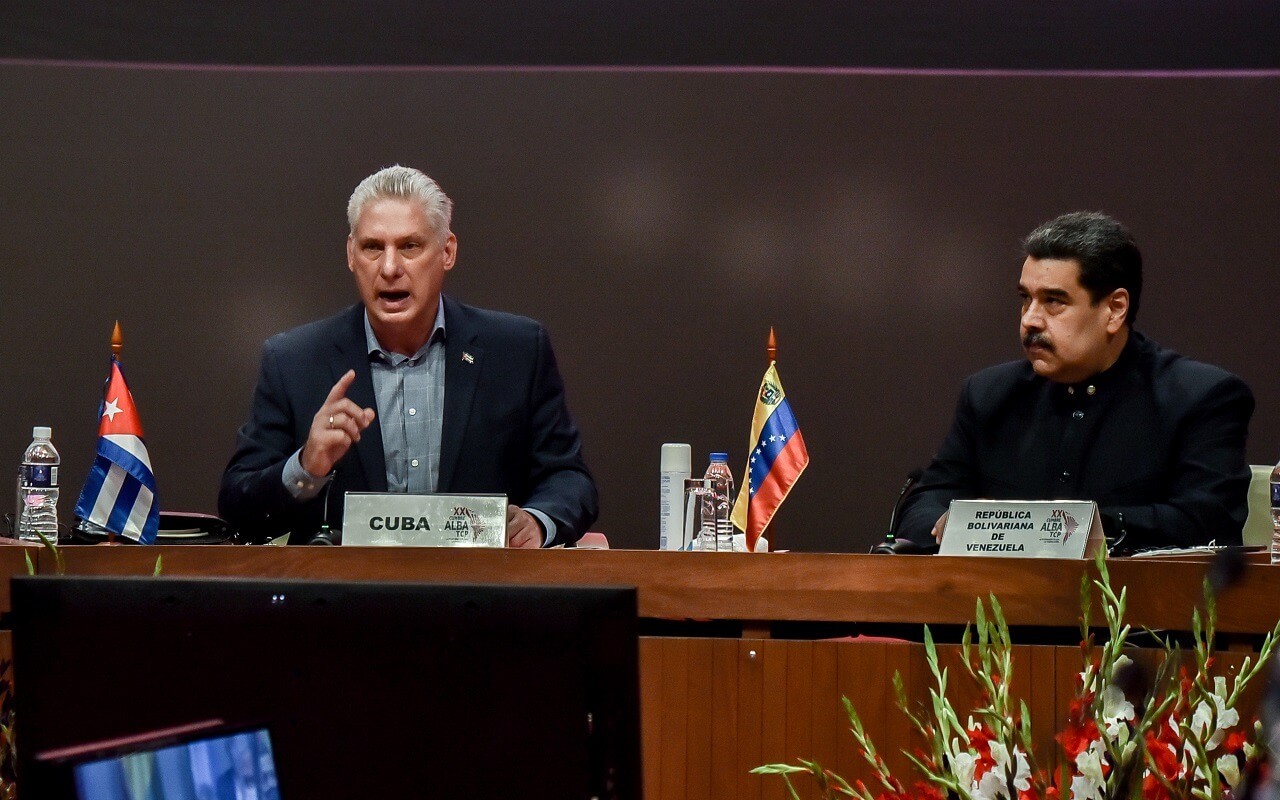Two days after the United States (US) relaxed Trump-era sanctions on Cuba, Deputy Foreign Minister Carlos Fernández de Cossío condemned the exclusion of relevant topics like racism, women’s rights, and marginalisation from the upcoming 9th Americas Summit in Los Angeles from June 6-10.
Doubling down on the Caribbean island nation’s constant criticism of the United States embargo, which has been in place since 1962, the diplomat lamented that the impact of coercive measures on nations and unequal access to healthcare is also absent from the Summit’s agenda.
In fact, Cuba’s participation at the Summit remains in doubt, given that US State Department officials have previously suggested that Cuba, Venezuela, and Nicaragua will not be invited due to concerns about human rights abuses and the legitimacy of their governments.
The United States government, under pressures from extreme sectors, will convene a limited and exclusive Summit in Los Angeles. It excludes #Cuba from discussions of issues such as migration which are important in bilateral and regional relations.
— Bruno Rodríguez P (@BrunoRguezP) May 13, 2022
To this end, Fernández de Cossío added, “If a country does not have the capacity to ensure the participation of everyone, it should not assume the commitment to hold a summit in its territory.”
The Department of State release says that the theme for the Americas Summit will be “Building a Sustainable, Resilient, and Equitable Future.” The focus of the summit will be to unite leaders from the hemisphere in collectively committing to “improve pandemic response and resilience, promote a green and equitable recovery, build strong and inclusive democracies, and address the root causes of irregular migration.”
Let's continue to boost the participation and engagement of Inter-American Youth, weaving networks and walking #TogetherForTheAmericas towards a more sustainable, resilient, and equitable future. #IXSummit
— Summit Americas OAS (@SummitAmericas) May 17, 2022
However, the White House remains non-committal on whether Cuba, Venezuela, and Nicaragua will be invited. In a press briefing yesterday, newly-appointed White House Press Secretary Karine Jean-Pierre reaffirmed that the “guest list is not finalised.”
To this end, on Wednesday, Mexican President Andrés Manuel López Obrador and Foerign Minister Marcelo Ebrard hosted a US delegation led by the advisor for the Summit, Christopher Dodd, and US Ambassador Ken Salazar. López Obrador and Ebrard presented the duo with a proposal for all countries to attend the event next month, with Ebrard saying he is “positive.”
In fact, the Biden administration has rolled back some sanctions on both Cuba and Venezuela, which may or may not be related to the threat issued by multiple Latin American and Caribbean leaders that they would boycott the Summit if every one isn’t invited.
On Monday, the US rolled back Trump-era restrictions on Cuba, whereby it will increase visa processing in Havana and also allow charter and commercial flights to land in airports outside the Cuban capital. At the same time, limits on family remittances have been removed.
Similarly, it has relaxed certain energy sanctions on Venezuela in order to incentivise the resumption of talks between Venezuelan President Nicolás Maduro and opposition leader Juan Guaidó, whom the US continues to recognise as the legitimate leader.
It’s no surprise that leaders slippering toward authoritarianism want to skip the Summit of the Americas. Strengthening democracy is the highest priority issue on the agenda. Defending democracy is a commitment that some Latin American politicians are unwilling to sign.
— Iria Puyosa (@NSC) May 12, 2022
While the measures have been welcomed, the blockade on Cuba remains firmly in place, as does its designation as a state sponsor of terrorism. Similarly, in Venezuela, drilling and exporting oil remain prohibited.
In this regard, Cuban Foreign Minister Bruno Rodríguez described these measures as only “a small step in the right direction.”
Likewise, his deputy, Fernández de Cossío, remarked that the easing of sanctions was “light on detail” and carries “a heavy load of hostile language toward Cuba and a dose of demagoguery.”
Carlos Faria, Venezuela’s Foreign Affairs Minister, thanked Mexico’s President López Obrador while appreciating his “courageous” stance in advocating “for a diverse and inclusive America.”
After leaders of over a dozen Latin American and Caribbean states refused to attend the Summit of the Americas scheduled to be held in Los Angeles in June, the Biden administration eases the U.S. government’s cruel sanctions on Cuba and Venezuela.#Cuba #Venezuela #Biden https://t.co/mb8Gj1G0fR
— Dimitri Lascaris (@dimitrilascaris) May 19, 2022
Furthermore, on Wednesday, First Lady Jill Biden commenced her six-day long Latin American tour with scheduled visits to Ecuador, Panama and Costa Rica as part of an outreach effort to “emphasise the importance of the US partnership.”
These moves have been interpreted by some as a precursor to the Americas Summit. However, a Senior Administration Official of the White House has said that the relaxation of sanctions on Cuba and Venezuela is “completely separate from the conversation of who attends and does not attend the summit.”

